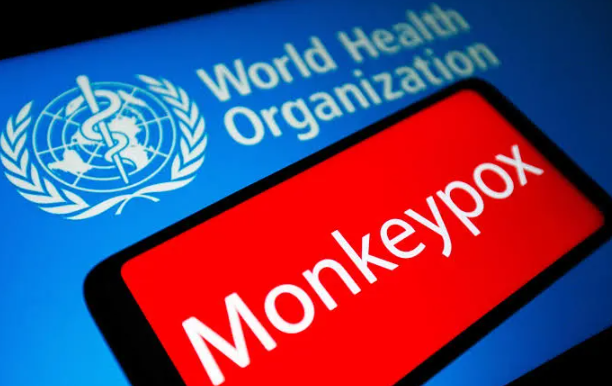WHO Declares Monkeypox a Global Emergency (GS Paper 2, Health)

Introduction
- On August 16, 2024, the World Health Organization (WHO) declared monkeypox a public health emergency of international concern (PHEIC).
- This significant step reflects escalating global concerns about the disease, particularly with the emergence of a new, sexually transmissible strain.
- This article explores the implications of this declaration, the nature of monkeypox, and the potential risks and responses, especially for countries like India.
Why in News?
- The declaration by the WHO comes as monkeypox cases surge globally, with 99,176 reported cases and 208 deaths across 116 countries since 2022.
- The new strain of the virus, clade Ib, has been identified as primarily transmitted through sexual contact, which has raised alarms due to its novel transmission mode and increasing number of cases in regions previously unaffected by the disease.
What is the World Health Organization (WHO)?
- The WHO, founded in 1948, is a specialized agency of the United Nations responsible for international public health.
- It has 194 member states and is headquartered in Geneva, Switzerland.
- The organization’s primary objectives include promoting health, ensuring global safety, and supporting vulnerable populations.
- It plays a crucial role in vaccination campaigns, managing health emergencies, and enhancing primary care systems.
- India has been a WHO member since January 1948 and is part of the South-East Asia Region.
- The region has been led by Indian nationals at different times, including Dr. Chandra Mani, the first regional director, and currently Dr. Poonam Khetrapal Singh.
What Does Declaration as a PHEIC Mean?
A PHEIC is an extraordinary event that poses a public health risk across international borders, prompting a coordinated global response. This designation by the WHO is intended to:
- Trigger International Collaboration: Facilitate coordinated international efforts to address the emergency.
- Unlock Funding: Enable access to funding for research, vaccine development, and treatment sharing.
- Enhance Monitoring and Response: Improve global monitoring and response strategies.
What is Monkeypox?
- Monkeypox is a rare zoonotic viral disease caused by the monkeypox virus, belonging to the Orthopoxvirus genus, which also includes smallpox.
- It was first identified in monkeys in 1958, giving the disease its name.
Symptoms and Transmission
- Symptoms: Common symptoms include fever, body aches, and a rash. While most cases resolve on their own, complications can include pneumonia, secondary infections, confusion, and eye issues. Severe cases can be fatal, particularly in vulnerable populations like children and individuals with weakened immune systems.
- Transmission: Monkeypox can spread from animals to humans through direct contact with infected animal fluids or lesions. Human-to-human transmission occurs through respiratory droplets or contact with lesions. However, it typically requires prolonged, close contact.
Current Concerns
- The recent surge of clade Ib, a variant of the monkeypox virus primarily spread through sexual contact, is causing significant concern.
- Historically, clade Ib was not associated with sexual transmission, making its recent spread through sexual contact a new and troubling development.
- The rise in cases in countries neighboring the Democratic Republic of the Congo (DRC)—including Burundi, Kenya, Rwanda, and Uganda—demonstrates the virus's expanding reach.
- With over 15,600 cases and 537 deaths reported this year alone, and evidence of the virus rapidly mutating and spreading among humans, there is an urgent need for global coordination to manage and contain the outbreak.
Risk for India
- India reported 27 cases and one death during the 2022 outbreak, which was primarily linked to clade II of the monkeypox virus.
- The recent emergence of clade Ib raises concerns about potential new cases due to global travel.
- The case reported in Sweden highlights the risk of the virus spreading internationally, including to India.
- Given the increasing global cases and the novel transmission mode of clade Ib, there is a heightened risk for India.
- The country needs to enhance its surveillance, prepare for potential cases, and strengthen public health responses to manage and mitigate the impact of monkeypox effectively.
Conclusion and Way Forward
The WHO's declaration of monkeypox as a global emergency underscores the need for a robust international response to address the spread of this disease. Countries, including India, must enhance their preparedness and response strategies, focusing on:
- Strengthening Surveillance: Improved tracking and reporting of monkeypox cases.
- Public Awareness: Educating the public about prevention and symptoms.
- Global Collaboration: Engaging in international efforts for research, vaccine distribution, and treatment development.
As the situation evolves, continuous monitoring and proactive measures will be crucial in managing the public health risks associated with monkeypox.


